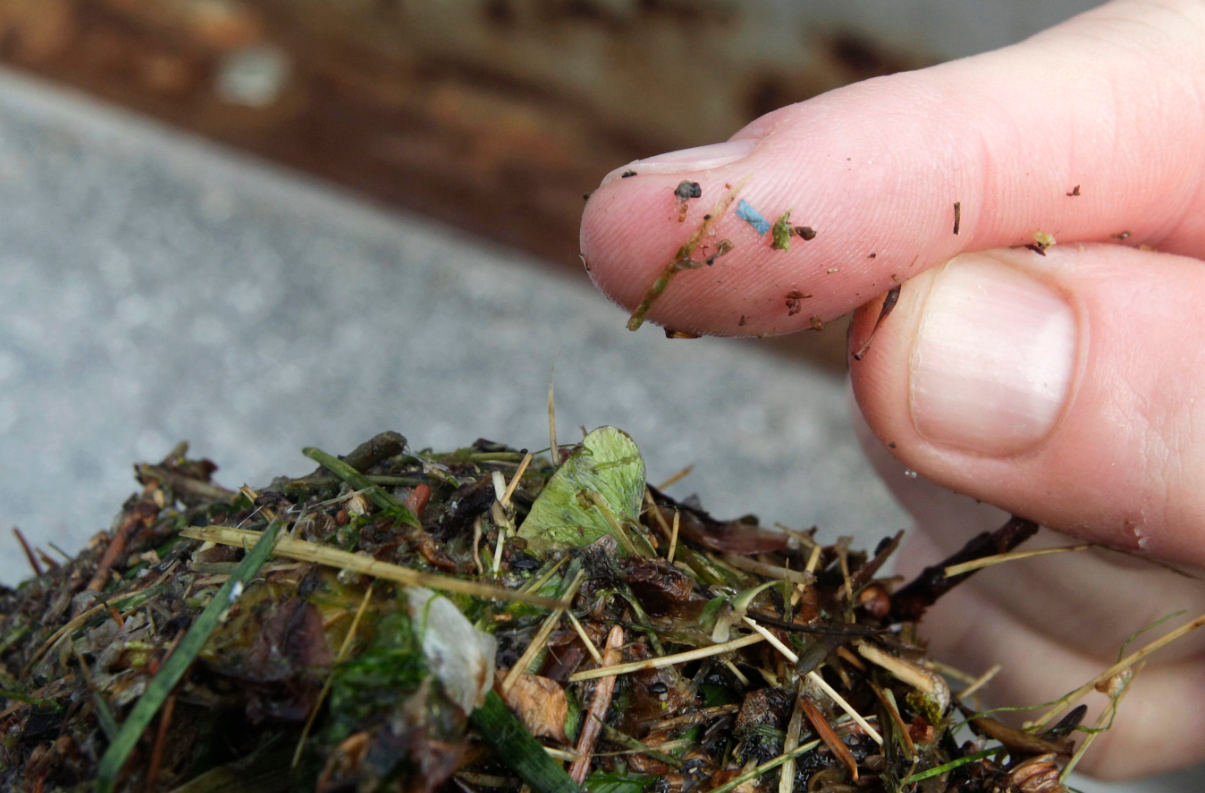Tackling Alaska’s $100-million plastic pollution problem

WASHINGTON — Alaska Sen. Dan Sullivan turned the focus of a congressional committee toward the mounting problems of marine debris polluting the shores of Alaska and the oceans Tuesday, in an effort to seek bipartisan policy solutions.
“While the problem of marine debris is apparent, there is clearly work to be done to identify effective strategies to prevent further pollution of the marine environment and mitigate the harm caused to our wildlife,” Sullivan said at the start of the hearing. Sullivan initiated the hearing in the Fisheries, Water and Wildlife Subcommittee, which he chairs.
Witnesses, including Chris Pallister, president of Gulf of Alaska Keeper, told the congressional panel that dealing with the issue will take funding, enforcement, education and international cooperation — no simple lift.
Sullivan said he and Sen. Sheldon Whitehouse, D-Rhode Island, “are already talking about looking into some of the ideas to address this,” and there is a “bipartisan consensus to take action here … Stay tuned.”
$100-million cleanup
Removing marine debris that is already washing ashore is only a “short-term fix” as the problem replicates “at the next high tide,” said Jim Kurth, deputy director at the U.S. Fish and Wildlife Service. “The scale and complexity of this problem outstrips the ability of any agency or nation to address alone,” Kurth said.
The scale is massive. Cleaning just the most impacted shorelines in Alaska would cost at least $100 million, Pallister told the committee.
At one point, Whitehouse stopped Pallister’s testimony in disbelief, and asked him to repeat what he’d told them about an ongoing Alaska cleanup effort in an area that holds 30 tons of plastic debris per mile, along shorelines with virtually no vehicle access.
“It’s a dangerous place to work. It’s incredibly challenging,” Pallister said. And “there’s thousands of miles like that in Alaska.”
“There has to be a deeper way we can address this with other nations,” Sullivan said.
The consumer goods problem
The problem is one inextricably linked to consumer goods, as global industries increased production of plastic annually for the last 65 years, said Jenna Jambeck, professor of environmental engineering at the University of Georgia. In 2014, the world produced 343 million tons of plastic, and roughly 9 million tons of new plastic end up in the ocean every year, Jambeck said.
Witnesses pointed to research that shows there are five main countries responsible for most of the marine debris problem, which is mostly a plastic problem: China, Thailand, the Philippines, Vietnam, and Indonesia — all rapidly developing nations.
In Alaska, 90 percent of the debris that washes ashore comes from foreign countries, by volume. But by weight, more than half of the debris comes from commercial fishing — nets, pallets, crates, buoys and other items, Pallister said. And it doesn’t come from Alaskan fisheries, he said, but from international dumping and sunken fishing and cargo ships.
The National Oceanic and Atmospheric Administration, which leads a multiagency task force focused on marine debris, says the “marine debris problem is different in Alaska than in other parts of the United States,” due to the massive and remote coastline.
Impact of chemicals and decomposing plastics on shorelines
The issue of marine debris is not just one of toxic shoreline pollution, but a problem of ingested chemicals that remain from decomposing plastics. Smaller animals eat them, and they “bioaccumulate.” As larger fish eat smaller fish, the chemicals, such as phthalates, move up the food chain with them.
“This could come home to roost in Alaskan salmon,” Whitehouse said.
The witnesses largely agreed plastics are the most pressing marine debris problem.
But they had varied suggestions for how to approach it.
Legal, political solutions on the table
Some suggested tackling trade agreements with developing countries to ensure the U.S. isn’t buying products that are cheaper because the producers pollute with impunity.
Kurth said that the Fish and Wildlife Service could use additional authority to recover damages when national wildlife refuges are damaged. NOAA and the National Park Service have such authority, but the Fish and Wildlife Service does not.
Sullivan wondered whether there might be some international approach to deal with pollution that comes from shores, rather than ships.
Jambeck suggested the U.S. should be a leader in ongoing discussions at the United Nations.
“This is a massive problem and there’s no silver bullet,” said Nicholas Mallos, director of the Trash Free Seas Program at Ocean Conservancy. But, he said, minimizing waste and better monitoring the waste stream of developing countries are important routes. “This is not currently a China problem or a Philippines issue … (but) an unintended consequence of rapid development,” Mallos said.
Lost containers at sea
Pallister said there are underemployed legal options.
“There’s a lot of shipping companies that lose containers, and nobody ever goes after them for the damage they cause onshore,” Pallister said. He noted one Chinese shipping company lost 29 containers in 2012, spreading debris across the Gulf, and said property owners — in this case the federal government — could go after the shipping companies for tens of millions of dollars that could be spent on cleanup.
“That’s something that ought to be explored,” Pallister said.
Contact at emartinson@alaskadispatch.com or on Twitter
Related stories from around the North:
Canada: Plastic microbeads- a toxic substance in waterways-from the Great Lakes to the Arctic, Radio Canada International
Finland: Microplastics – the latest threat to the Baltic, Yle News
Greenland: Study finds increase in litter on Arctic seafloor, Blog by Mia Bennett
Norway: Microplastics found in waters off Svalbard, Alaska Dispatch News
Russia: Submariners feed polar bears with garbage, Barents Observer
Sweden: Sweden tackles microplastics problem, Radio Sweden
United States: Arctic sea ice littered with tiny bits of ‘microplastic’ pollution, Alaska Dispatch News



